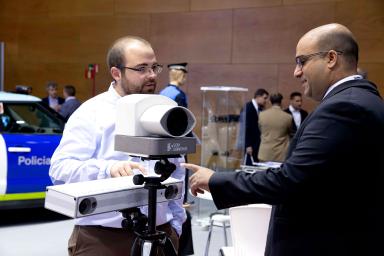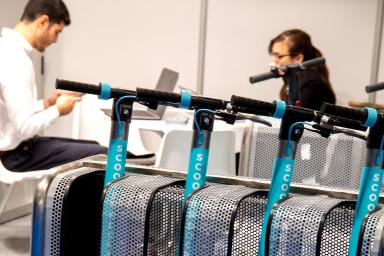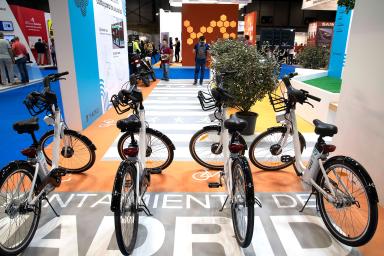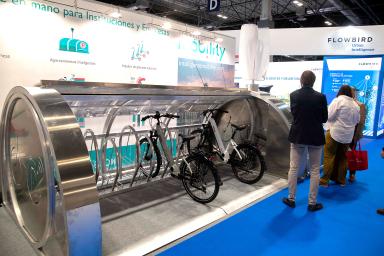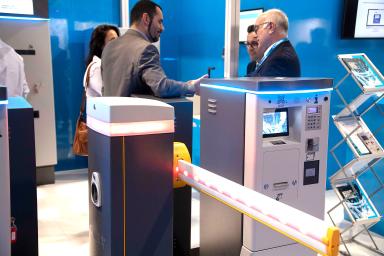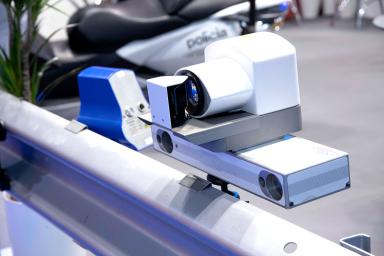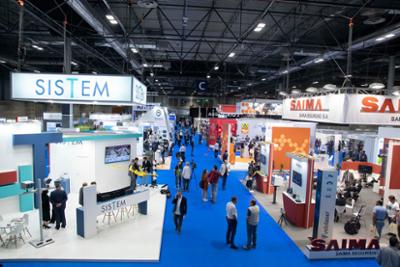
This was the latest edition of TRAFIC 2019
TRAFIC 2019 received over 4,600 professionals of the mobility industry
A total of 70 companies showed their most innovative profile. The largest event on the Iberian Peninsula on new mobility management hosted a busy schedule of professional meetings, including the new Innovation Arena meetings.
TRAFIC 2019, International fair and the largest Spanish event dedicated to managing the new safe and sustainable mobility, closed its sixteenth edition, organised by IFEMA, from 8 to 11 October at Feria de Madrid, with great success, as it brought together over 4,600 high-profile professionals and a total of 70 exhibitors, from 8 countries, who showcased the industry’s hard work on R+D.
The original commercial exhibition of the latest technological advances, the busy schedule of conferences and professional meetings within the Fair, and the level of institutional representation (the minister of Home Affairs; the minister of Public Works and the minister of Industry, Commerce and Tourism), associations and business, both public and private, once again confirmed TRAFIC as the largest mobility event of the Iberian Peninsula.
One of the novelties of this edition was the Innovation Arena, an area for companies to give presentations on their most innovative products and solutions. This year these companies took the opportunity: PTV Group Iberia, Saima Seguridad, Sistemas y Montajes Industriales SISTEM; Sustainable Intelligent Transportation Systems, and Vitronic.
It was precisely at the Innovation Arena where, on the 10 October, the conference on “The future of mobility” took place, organised by Connected Mobility Hub, the innovation ecosystem that supports and promotes startups that aim to change the mobility paradigm.
TRAFIC 2019 was also the setting for other events such as the II International Congress of Professionals for Road Safety and Education, CIPSEVI; the III National Convention on Road Safety by Local Police, and the I National Congress on Mobility.

This was the National Mobility Congress
Organised by the Smart Mobility Forum and the Association of Traffic Engineers and Mobility Technicians.
It gathered participants from the various areas of Mobility and throughout 15 sessions they analysed current issues relating to infrastructures, vehicles, drivers, operators, road safety, the environment, self-driving cars, etc.
The main object of the event was to promote a comprehensive view of mobility, with the perspective, work and background of the different participants, in addition to trying to bring them all together for the first time at an event of this nature in Spain. The attendance of close to 800 people speaks of the success and timeliness of the event.
Representatives of the main State, Autonomous Community and Local authorities in charge of mobility participated in the opening session. Their presence and messages helped to focus the content of the discussions from the onset.
The congress opted for a single-room format that, although reducing the number of participants in the program, guaranteed a common area and avoided parallel sessions that would divide the attendance and could have competed with other reference events in the various mobility areas.
Parking, Credit Cards in Public Transportation, Urban Distribution of Goods, Use of Models in Mobility Management and Planning and Urban Road Safety were the sessions for Wednesday the 9th, and a clear example of the diversity of subjects that would be difficult to analyse in a single day, because they are usually of interest to very different types of public. Although there was a significant rotation among attendees at the various sessions, there was also a permanent audience interested in a wide vision of mobility, who valued very positively the diversity of subjects and approaches.
On Wednesday evening the Municipal Zero Vision awards were given to those Spanish cities of over 100,000 inhabitants that had no fatal traffic accidents on their roads in 2018. This time there were 14 Spanish cities that achieved this important milestone: Elche, Jerez de la Frontera, Alcalá de Henares, Burgos, Logroño, Lleida, Parla, Mataró, Torrejón de Ardoz, Cádiz, Santa Coloma de Gramenet, Alcobendas, Reus and Telde.
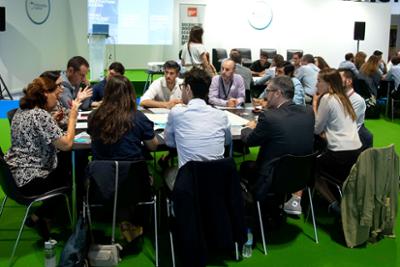
Innovation Day on THE FUTURE OF MOBILITY
This was the Innovation Day held during TRAFIC 2019 by HUB Connected Mobility.
The Day consisted of three workshops each dealing with a different topic on the evolution of future mobility in cities.
These workshops were attended by people from government, mobility management companies, carsharing companies, public and private transport, pioneering start-ups in mobility solutions, etc.
These were the solutions they proposed for each of the topics.
- Micro mobility: What elements do city authorities have to take into account so that they can integrate micro-mobility options (like electric scooters and shared bicycles) in their strategies?
Proposals
- Defined parking areas for bicycles, scooters, motorcycles and personal transporters.
- Information campaigns about sustainability, using personal transporters, road safety, regulation and other topics.
- Creation of an industry body to involve all the different actors to be able to speak to government with a single voice.
- Pass a National Mobility Law to provide a homogenised framework for regulation of personal transporters and training in their use.
- Mobility to work, safe and sustainable: How does mobility contribute to the future of work?
Proposals
- Restrict vehicles on roads, only allowing certain subsets of car registration plates when necessary.
- Telework and promoting mobility: when companies relocate, they must take into account the job mobility of their employees.
- Improvements to infrastructure: increase timetables and frequencies, provide more routes and stops.
- A single ticket to cover all the options available for getting to work.
- Urban tolls to mitigate traffic congestion and pollution problems associated with private vehicles.
- Multimodal Mobility: Is multimodal mobility designed for all users living in the city? How can we ensure that it is?
Proposals:
- Multimodality v. private vehicles: to solve congestion and pollution problems in towns.
- A complete and varied provision to cover the needs of both daily commuting and occasional journeys.
- Inclusive technology in all provisions, integrating all public and private services.





